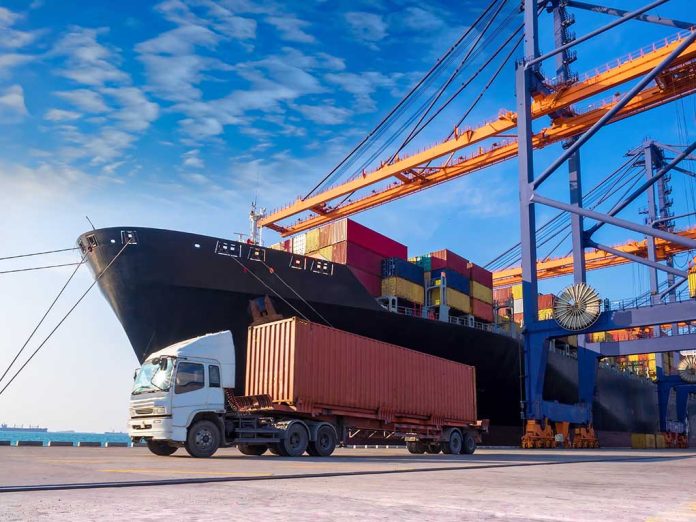
Dockworkers’ strike suspended as unions and ports have reached a tentative agreement, averting potential supply chain crisis for the time being.
At a Glance
- 45,000 dockworkers at East and Gulf coast ports are returning to work after a strike suspension.
- The tentative agreement includes a 62% wage increase over six years.
- The strike has been suspended until January 15 to allow time for further negotiations.
- Port automation remains a key issue in ongoing discussions.
Strike Suspension and Tentative Agreement
The International Longshoremen’s Association has suspended a strike that threatened to disrupt operations at 36 ports along the East and Gulf coasts. This decision comes after a breakthrough in negotiations between the union and port operators. The strike, which began over disputes on pay and port automation, has been put on hold until January 15, 2025, allowing time for further discussions on a new contract.
A tentative agreement on wages has been reached, with ports increasing their wage offer from 50% to 62% over six years. This compromise falls short of the union’s initial demand for a 77% raise but represents significant progress in the negotiations. The agreement, however, requires approval from union members for final ratification.
BREAKING: The union representing 45,000 striking U.S. dockworkers at East and Gulf coast ports has reached a deal to suspend their strike until Jan. 15 to provide time to negotiate a new contract, a person briefed on the matter says. https://t.co/evnfIJsyJW
— The Associated Press (@AP) October 3, 2024
Ongoing Negotiations and Key Issues
While the wage increase is a crucial step forward, several issues remain unresolved. Port automation continues to be a significant point of contention, with unions arguing that it will lead to job losses. The tentative agreement suggests progress towards a final deal, but discussions on automation and other matters are ongoing.
“With the grace of God, and the goodwill of neighbors, it’s gonna hold,” President Joe Biden said following news of the tentative agreement.
The temporary suspension of the strike means workers will resume operations under the old contract, which expired on September 30. This arrangement allows for continued port operations while negotiations proceed, avoiding potential disruptions to the supply chain during the critical holiday shopping season.
Impact on Supply Chain and Economy
The strike’s suspension comes as a relief to many sectors of the economy. Industry analysts suggest that a short strike would not have severely impacted the supply chain, but a prolonged dispute could have led to goods shortages and price hikes. Many retailers had preemptively stocked up in anticipation of the strike, mitigating some of the potential impacts.
The settlement is particularly timely, as it avoids potential shortages and price increases before the November presidential election. It also helps better secure the availability of critical supplies for Hurricane Helene recovery efforts, a point emphasized by President Biden in his statement on the agreement.
Political Implications
The Biden-Harris administration, which has positioned itself as union-friendly, sees this development as a positive outcome. The White House played a role in facilitating the agreement, with Acting Labor Secretary Julie Su and Chief of Staff Jeff Zients involved in negotiations to increase wage offers.
President Biden’s involvement and statements on the matter underscore the administration’s commitment to labor issues and its focus on economic stability. As the negotiations continue and the January 15 deadline approaches, the outcome of this labor dispute will likely remain a significant point of interest for both economic and political observers.
Sources
- Dockworkers’ union suspends strike until Jan. 15 to allow time to negotiate new contract
- Dockworkers’ union to suspend strike until Jan. 15 to allow time to negotiate new contract












